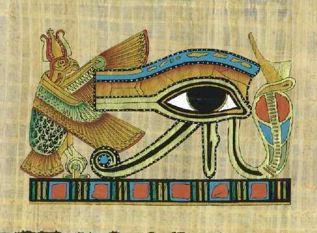
This is one of the many extraordinary stories that exist in the Bible. The scenario is that of a film by Alfred Hitchcock. In it the wisdom of Salomon is expressed in a brilliant way.
According to the Book of Kings (1 Kings 3, 16-28), two prostitutes seek the presence of Solomon so that the king may resolve for them a serious matter: both of them accused each other to have stolen their son. Contextualizing better: both had given birth in the same period, with a small difference of only three days. One of them, while sleeping together with the child ended up suffocating the baby to death. Before dawn, she exchanged the dead child with that of her friend’s very alive son. When day breaks, she opens her eyes to a frightful surprise: as she looks for her son beside her she finds only the dead child. Instantly she is stricken with pain, desperation and misfortune. “No, my son couldn’t have died! This could not have happened, not with me” she said to herself as she cried bitterly for the death of the baby as any mother would in such a situation. In despair she tears apart her clothing and morns loudly awakening all of the neighbors. But as the sun rises higher and the morning light penetrates deeper into the bedroom where she slept, she realizes that it is not her son. The baby had been swapped. She then sees, to her dismay, her son in the arms of another, breastfeeding peacefully. “You stole my son, my only son!” she shouts in despair. “No, I didn’t”, retorts the other.
The matter reached the king, Salomon, whose fame and wisdom had spread all over the known world. The king, regarded as fair and wise will now have the difficult task of resolving the dispute, and does so splendidly.
The two prostitutes present themselves before the king and each of them, in their own way, relate their version of the facts. Solomon, astounded by a history of such complexity, and without knowing in fact which version is true, has an amazing idea. “So then,” the king said: “she says: ‘this live boy is my son; your son is dead!’ – and the other says: ‘No, your son is dead; the one who lives is my son!” […] So the King ordered: “Bring me a sword!” – A sword was brought before the king, and he said: “I will divide the live child in two parts and give one half to her and the other half to the other!” Done! Problem solved. Thus Solomon, the great and wise King had found a solution to the problem. It just so happens that to split the boy in half would mean to murder him! A boy is not a goat or an ox, or a farm. The boy is a person. As the old English proverb goes, you can’t make an omelet without breaking some eggs.
“But the mother to the live child” – as the story goes – “pleading for the life of her son, said to the king: ‘Oh my good Lord, give the boy to her, just don’t kill him’ – while the other said: ‘He’ll not be yours or mine then; divide him!’ And the king responded: ‘give the live boy to this one, the one who said ‘just don’t kill him’ for she is his mother!” And that’s how the story ends.
René Girard, in his book “Occult Things since the founding of the World”, analyses “Salomon’s judgment”. In the French author’s view, the backdrop of the issue is mimesis; we have the natural tendency to imitation. We wish for what is not ours, not because it’s good, but simply because it’s someone else’s. To prove this thesis, I invite you to do a small but enlightening experience: take two children of approximate ages, put them together and give each of them the same present: same color, same brand, as in identical, then wait to see what happens. It won’t take long for both of them to be disputing over each other’s present.
Moses, the great Hebrew legislator who possessed profound knowledge of the human soul, was clearly aware of mimetic desire and the evils it can bring to a certain community. So much so that, when he wrote the Decalogue, inspired by God Himself (Exodus 20: 1-10), he poses as the grand finale precisely that which comes to caution us of this strange force which emanates from all of us: the mimetic desire. As the Tenth Commandment says: “Thou shalt not bear false witness against thy neighbor, thou shalt not covet thy neighbor’s wife, not thy neighbor’s goods, house or fields, nor his male or female slaves, nor his ox or ass, or anything that belongs to him.
It is with this problem that King Solomon was faced with and which we still encounter in our day to day lives. How many times do we find ourselves desiring, unwittingly: another person’s car, house, shirt, watch, perfume. What’s more, we buy certain objects that don’t even serve us. But we buy them anyway, after all, it’s all the craze, everyone’s using it! And it doesn’t even occur to us that we look ridicules, that that piece of clothing is meant for someone twenty pounds lighter and twenty years younger!
But mimesis, as a good thing to say, is not in itself an evil to be avoided at all cost. Christ himself impels us to imitate when he said “Therefore you are to be perfect as your heavenly Father is perfect.” (Mt 5,48). The only thing left to know is what and whom to imitate.
Related Articles











